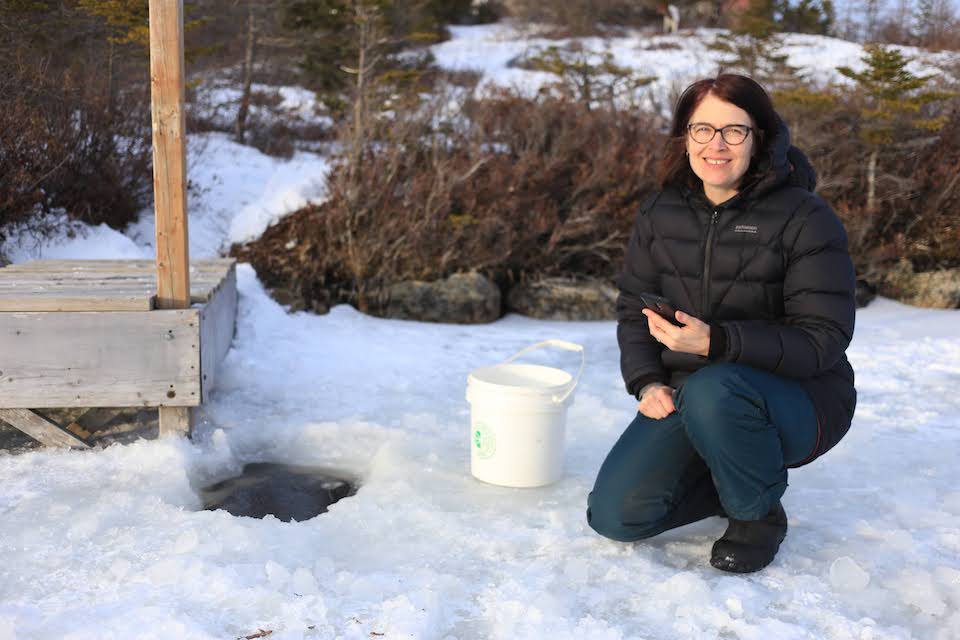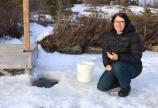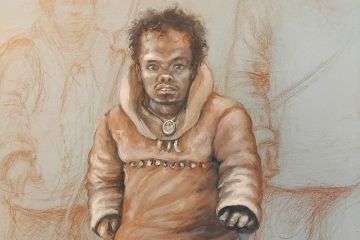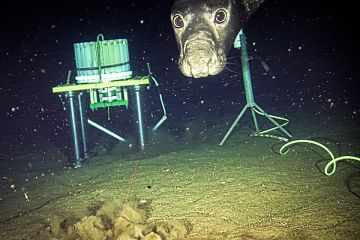Expert Q&A on environmental impacts of COVID-19 lockdown

Global lockdown measures for COVID-19 dramatically changed the way humans interact with the environment. The popular notion that this temporary shift—that some researchers termed the Anthropause—would be “good for the environment” is not entirely true. A new study led by marine biologist Amanda Bates highlights the dual role that humans play in both threatening and protecting species and ecosystems.
Bates joins UVic in July as professor in biology and as UVic Impact Chair in Ocean Ecosystem Change and Conservation. Bates was also recently appointed a Pew fellowship in marine conservation.
Bates, who joins UVic from Memorial University, co-launched the PAN-Environment Working Group last year to explore how lockdown measures affected the environment. The group’s research, published in Biological Conservation, reported the immediate impacts of changes in human activities on wildlife and environmental threats during the early lockdown months of 2020, based on 877 qualitative reports and 332 quantitative assessments from 89 different studies.
Q. What was the impact of the lockdown on the environment?
A. The impact of the Anthropause on the environment was immediate, showing both positive and negative effects. Hundreds of reports of unusual species observations from around the world suggest that animals quickly responded to the reductions in human presence. Restrictions also led to immediate decreases in air, land and water travel, with similar declines in industry, commercial exploitation of natural resources and manufacturing. As well, we observed lower levels of air pollutants—Particulate Matter 10, nitrogen dioxide, carbon dioxide, sulfur dioxide—and noise pollution.
However, negative effects of lockdown on conservation also emerged. Some park officials were unable to perform conservation, restoration and enforcement tasks. There were local increases in illegal activities such as hunting?
Q. Will these impacts have long-term effects?
A. The net effect of the lockdown will need to be assessed over years as data becomes available and persistent effects emerge. I’ll examine these long-term impacts as part of my upcoming Pew fellowship while at UVic.
Q. Why are global research collaborations important?
A. Partnerships are key in solving big, tough challenges which require data, information and knowledge across many different places, systems and disciplines. UVic biologist Francis Juanes, for example, contributed to the study as part of a global research team that documented the impact of noise on marine animals and ecosystems. We also worked with Tom Okey, UVic marine ecologist, who is leading a global network for reporting strange environmental events. We looked at how the lockdown influenced how many reports came in.
These are just two researchers among 348 contributing authors, 10 of whom are from the UVic faculties of Science and Social Sciences, and Ocean Networks Canada (ONC). And I can’t begin to list the many graduate students involved from around the world.
Q. How did ONC’s infrastructure and data capability help you do your research?
A. Observatories that were actively monitoring—sound, animals, fishing—provided the first understanding of how both humans and nature were responding. The lockdown highlighted how infrastructure such as ONC is fundamental in providing strong networks, data pipelines, and rapid capacity to interpret data on the environment. Without such infrastructure and superior data, it is impossible to track or understand how natural systems respond to disturbances. Without this understanding, decisions would be based on intuition or expert opinion rather than data.
Q. How will your research be used to develop solutions to managing the environment?
A. My Pew work will identify critical aspects of management and conservation programs such as eradication of predators and pests. The work may also point out where any impacts due to human activities were previously considered benign, but actually had stronger effects than realized because change in human activities were so dramatic in so many places during the lockdown. I also suspect what may come out of the research is how important local experts and teams are in ensuring programs are resilient and efficient—many teams had to rely on local experts to implement conservation actions and research. I hope community-engaged practices continue as historically such programs are more successful in generating positive management outcomes.
Q. As a UVic impact chair, what will you focus on?
A. As we learn more about how climate-forced changes affect marine organisms and ecosystems, we need to focus on what adaptation and management approaches can best support ecosystem resilience.
I see great potential for collaboration across disciplines by being immersed in the academic environment at UVic, leading to stronger conservation gains that are valued by society. Some of the first projects my group will start at UVic will involve using traits of deep sea fauna from seamounts and hydrothermal vents—from their physiology to what they eat—to reveal diversity and conservation hotspots, as well as to predict changes due to warming and oxygen loss in our oceans
Q. How do you intend to tackle climate solutions research at UVic?
A. The global lockdown has shown that society can change rapidly and responsively—a positive message that transformative change is possible. Developing climate solutions needs many different minds and groups to come together with different types of knowledge. Large collaborative teams can develop nature-based climate solutions, offer engineering innovation, and creative influential communication pathways. When I join UVic, I hope to work in large collaborative teams to tackle these grand challenges.
-- 30 --
Photos
Media contacts
Dorothy Eggenberger (Science Communications) at 250-721-8745 or scieco@uvic.ca
Jennifer Kwan (University Communications + Marketing) at 250-721-7641 or researchcomm@uvic.ca
In this story
Keywords: research, oceans, biology, biodiversity, climate, COVID, environment, Ocean Networks Canada
People: Amanda Bates





